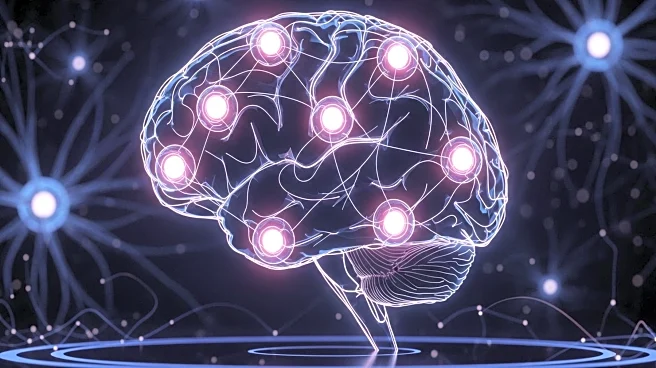What's Happening?
Researchers at Skoltech have developed a mathematical model that suggests the human brain may function optimally with seven senses rather than the traditional five. This model, published in Scientific Reports, explores how memory functions and proposes that the number of distinct objects held in memory is maximized when each concept is characterized by seven features. The study, led by Professor Nikolay Brilliantov, focuses on the basic units of memory known as engrams, which are collections of neurons that fire together to represent concepts. The findings indicate that a conceptual space with seven dimensions allows for the greatest capacity of distinct engrams, potentially leading to a deeper understanding of the world.
Why It's Important?
The implications of this research are significant for fields such as robotics and artificial intelligence, as understanding the optimal number of senses could enhance the development of systems that mimic human memory and cognition. By maximizing the capacity of conceptual spaces, AI systems could achieve more sophisticated levels of understanding and interaction with their environment. Additionally, this research could influence future studies on human evolution, suggesting that humans might develop additional senses, such as radiation or magnetic field detection, to enhance their interaction with the world.
What's Next?
The study opens avenues for further exploration into the nature of human senses and memory. Researchers may investigate the practical applications of these findings in AI and robotics, potentially leading to advancements in how machines process and store information. Additionally, the concept of evolving human senses could inspire new research in evolutionary biology, examining how humans might adapt to environmental changes over time.
Beyond the Headlines
The study raises questions about the ethical and philosophical implications of enhancing human senses or replicating them in AI systems. As technology advances, society may need to consider the impact of artificial enhancements on human identity and the potential for creating machines with human-like cognitive abilities. These discussions could shape future policies and ethical guidelines in technology and healthcare.










